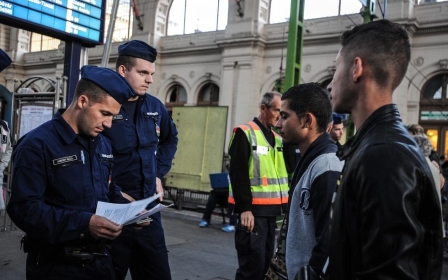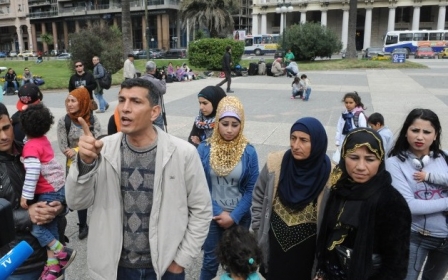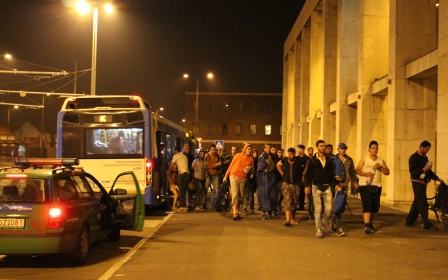German tabloids print Arabic refugee welcome guides

German newspapers Bild and BZ on Wednesday published a pull-out guide in Arabic for refugees in the capital city, headlining it "Welcome to Berlin".
The four-page guide includes a map bearing Arabic translations of key districts, with locations of refugee shelters and other key migration services.
The supplement published in the greater Berlin region also includes a dictionary of basic German phrases, greetings, directions and the days of the week.
The first page of the guide includes a welcoming paragraph by Berlin mayor Michael Mueller, who writes that his city "welcomes all those who have fled war and forced migration".
"We will try to incorporate you into our society, because we know that you are trying to participate and that you want to build a new life," Mueller writes in the short column.
BZ told readers to give the edition "as a gift to a refugee after reading it".
Germany's media have thrown their weight behind the government's decision to open the doors to an unprecedented number of refugees fleeing war and persecution in countries including Syria and Iraq. Earlier in the week, Germany suggested it would be willing to take up to 500,000 refugees a year for the next couple of years.
Bild, Germany's top-selling daily, has in recent weeks run a campaign called "We help".
Bild, whose title means "Picture" in German, on Tuesday ran its issue entirely without pictures after it was criticised for publishing harrowing images of Aylan Kurdi, the Syrian toddler whose body was photographed washed up on a beach in Turkey after his family's attempt to flee Kobane to Europe ended in tragedy.
The paper's editor-in-chief said the decision to forgo pictures in Tuesday's issue was "a tribute to the power of images".
Europe's biggest economy is expecting to welcome 800,000 asylum-seekers in 2015, four times more than a year ago and far more than any other European country.
Middle East Eye propose une couverture et une analyse indépendantes et incomparables du Moyen-Orient, de l’Afrique du Nord et d’autres régions du monde. Pour en savoir plus sur la reprise de ce contenu et les frais qui s’appliquent, veuillez remplir ce formulaire [en anglais]. Pour en savoir plus sur MEE, cliquez ici [en anglais].




